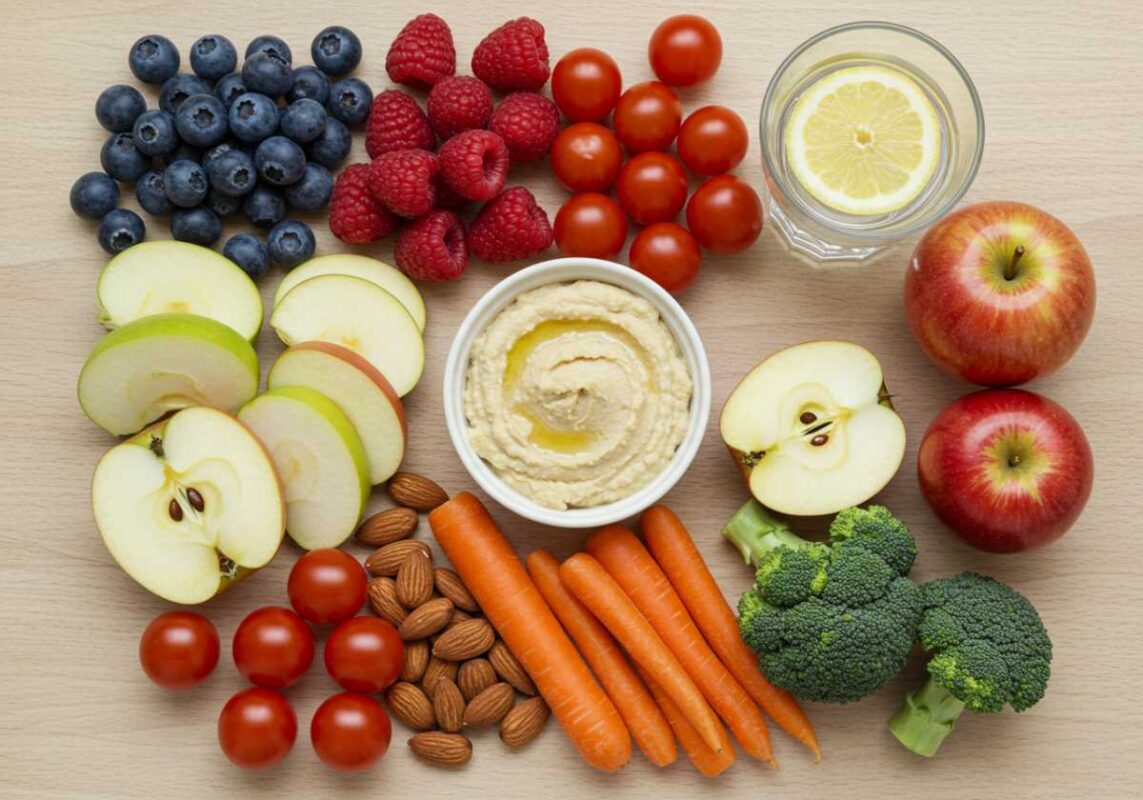Healthy Living, Blog, Tips and Hacks
6 Healthy Weight Management Tips for Teenage Girls: A Gentle Guide to Feeling Your Best

Being a teenage girl comes with its own unique set of challenges, and if you’re reading this, you might be thinking about your health and how to feel more confident in your own skin. First, let me say this: you are enough, exactly as you are right now. But if you’re looking to develop healthier habits that happen to support a healthy weight, I’m here to guide you with science-backed advice that prioritizes your overall wellbeing.
As someone who’s been through the teenage years (admittedly, a while ago now!), I understand that this time in your life can feel overwhelming. Your body is changing, social pressures are real, and sometimes it feels like everyone has an opinion about what you should look like or weigh. Here’s the truth: healthy weight management isn’t about fitting into a certain size or looking like someone else. It’s about developing sustainable habits that make you feel strong, energized, and confident.
Let’s explore six gentle, effective strategies that can help you on your wellness journey.
Table of Contents
1. Embrace Whole Foods and Ditch the Ultra-Processed Stuff

One of the most impactful changes you can make is shifting toward whole, minimally processed foods. This doesn’t mean you need to follow a restrictive diet or never enjoy treats again – it’s about making choices that fuel your body properly most of the time.
Focus on incorporating more fruits and vegetables into your meals, which provide essential nutrients and fiber that help you feel satisfied. Instead of reaching for packaged snacks when you’re hungry, try keeping cut vegetables with hummus, fresh fruit, or a handful of nuts nearby.
The key is gradual change. Start by swapping one processed snack per day for a whole food option. Maybe replace that afternoon bag of chips with apple slices and peanut butter, or trade your usual sugary drink for water infused with fresh fruit. Small changes compound over time and are much more sustainable than dramatic overhauls.
When you do enjoy treats – and you absolutely should – savor them mindfully rather than eating them quickly while distracted. This helps you enjoy them more and naturally eat appropriate portions.
2. Prioritize Quality Sleep (Yes, Really!)

I know, I know – sleep advice might sound boring when you’re thinking about weight management, but bear with me. Getting 8-10 hours of sleep each night is crucial for teens, and inadequate sleep can actually interfere with your body’s hunger and fullness signals.
When you’re sleep-deprived, your body produces more of the hormone that makes you feel hungry and less of the hormone that signals fullness. This can lead to increased cravings, especially for high-calorie, sugary foods. Plus, when you’re tired, you’re more likely to reach for quick energy fixes rather than nutritious meals.
Creating a consistent sleep routine can be a game-changer. Try having at least 30 minutes of screen-free time before bed and establish calming pre-sleep rituals like reading, gentle stretching, or listening to soft music. I know it’s tempting to scroll through social media until late, but your body (and your mood the next day) will thank you for setting boundaries with technology.
3. Find Movement You Actually Enjoy

Exercise doesn’t have to mean grinding through workouts you hate. The best physical activity is the one you’ll actually stick with because you find it fun or fulfilling. Maybe you love dancing in your room to your favorite playlist, or perhaps you enjoy going for walks while listening to podcasts or music.
The goal is to move your body regularly in ways that feel good. This might be joining a sport at school, taking yoga classes, hiking with friends, or even just parking farther away when you go places. Regular exercise not only supports overall health but also improves sleep quality and mental wellbeing.
Don’t feel pressured to do intense workouts every day. Consistency matters more than intensity. Aim for some form of movement most days of the week, even if it’s just a 15-minute walk around your neighborhood. Your body is designed to move, and finding activities you genuinely enjoy makes it feel less like a chore and more like self-care.
4. Stay Hydrated and Be Mindful of Liquid Calories

Water is your best friend when it comes to supporting your body’s natural processes. Sometimes what we think is hunger is actually thirst, so staying well-hydrated can help you tune into your body’s actual needs more accurately.
If you’re used to drinking a lot of sugary beverages like soda, fruit juices, or fancy coffee drinks, consider gradually reducing these. Cutting down on added sugars is one of the most effective dietary changes you can make. These drinks provide a lot of calories without much nutritional value, and they don’t help you feel full the way solid foods do.
Try infusing your water with fresh fruit, cucumber, or mint if plain water feels boring. Herbal teas can also be a great option, especially in the evening. If you’re used to drinking several sugary drinks per day, don’t try to eliminate them all at once – gradually replace one at a time with water or unsweetened alternatives.
5. Practice Mindful Eating and Listen to Your Body

In our fast-paced world, it’s easy to eat while distracted – scrolling through your phone, watching TV, or rushing between activities. But practicing mindful eating can help you develop a healthier relationship with food and naturally support weight management.
This means paying attention to your hunger and fullness cues, eating slowly enough to actually taste your food, and checking in with yourself about how different foods make you feel. Notice which foods give you sustained energy and which ones leave you feeling sluggish or craving more.
It’s also important to eat regular meals throughout the day rather than skipping meals and then overeating later. A slow and steady approach to lifestyle change is more effective than dramatic restrictions. Your body needs consistent fuel to function well, especially during these important growth and development years.
6. Focus on Adding, Not Restricting

Instead of focusing on all the foods you think you shouldn’t eat, shift your mindset toward adding more nutritious options to your meals and snacks. This positive approach is more sustainable and helps you develop a healthier relationship with food overall.
Stock your kitchen with healthy options like fruits, vegetables, yogurt, nuts, and whole grains so they’re easily accessible when you’re hungry. When you’re planning meals, think about how you can add vegetables to dishes you already enjoy, or how you can include a source of protein to help you feel satisfied longer.
This approach removes the feeling of deprivation that often leads to overeating later. When you know that no foods are completely off-limits, it’s easier to make balanced choices most of the time while still enjoying treats occasionally.
A Final Thought: Be Patient with Yourself
Remember that developing healthy habits is a journey, not a destination. There will be days when you don’t make the choices you intended to, and that’s completely normal and human. Sustainable change happens gradually – don’t expect perfection from yourself.
Your teenage years are a time of significant physical, emotional, and social changes. It’s important that any changes you make to support your health also support your overall wellbeing and happiness. If you find yourself becoming obsessed with weight or food, or if these concerns are interfering with your daily life, please reach out to a trusted adult like a parent, school counselor, or healthcare provider.
You deserve to feel confident, healthy, and happy in your own body. These tips aren’t about achieving a certain number on a scale – they’re about developing habits that will serve you well throughout your life and help you feel your absolute best. Start with one small change that feels manageable, and build from there. You’ve got this!
